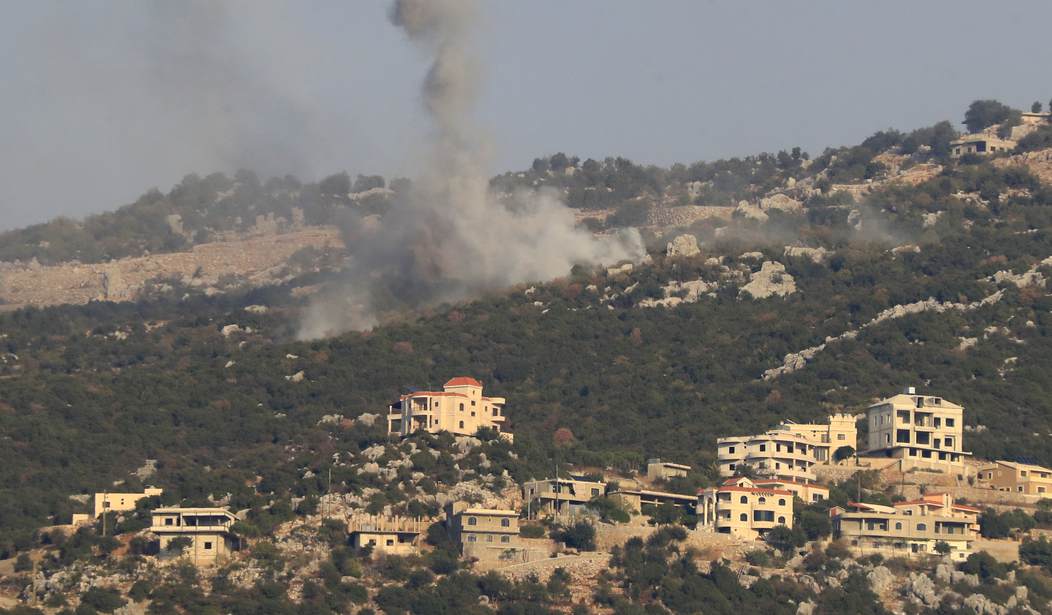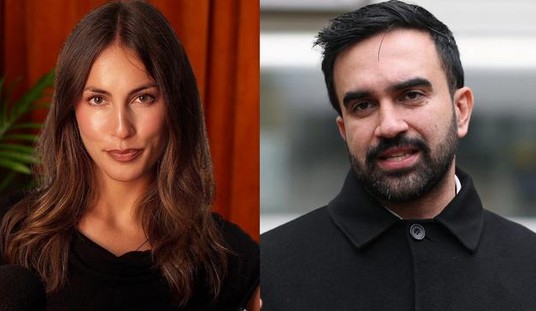There are 80,000 civilians displaced in northern Israel as a result of attacks by Hezbollah since October 7. Now, the IDF is moving three divisions to the northern border to "reshape the security reality" so that the civilians can return home.
Israel Defense Forces Spokesman Rear Adm. Daniel Hagari acknowledged tha Israel has carried out 3,400 strikes on Hezbollah targets in Syria and Lebanon, killing 200 Hezbollah fighters and destroying terrorist infrastructure in the process.
Some of the targets hit include "some 120 observation posts, 40 weapons depots, and 40 command centers manned by Hezbollah members, along with more significant sites such as an airstrip used by Hezbollah to launch drones and a weapons depot storing anti-aircraft missiles," Hagari said, according to Times of Israel.
“We will continue to act wherever Hezbollah is present, we will continue to act wherever it is required in the Middle East. What is true for Lebanon is true for Syria, and is true for other more distant places," Hagari said.
The numerous skirmishes on the border have cost Israel six civilian deaths as well as the "deaths of nine IDF soldiers and reservists. There have also been several attacks from Syria, without any injuries," reports the Times.
There has been discussion of a "pause" in the fighting in Gaza. But Defense Minister Yoav Gallant says that cessation of hostilities in the south won't affect Israel's war against Hezbollah in the north.
“If Hezbollah thinks that when there’s a pause in fighting in the south, we will hold fire against it, it’s sorely mistaken,” Gallant said after meeting troops from the IDF’s Alpine unit, according to a statement from his office.
“I say here explicitly: Until we reach a situation in which it’s possible to restore security for residents of the north, we will not stop. Whether we reach this through a [diplomatic] arrangement or military means, we will [restore] calm,” he told troops, according to the statement from his office.
Top Israeli officials have repeatedly threatened to go to war in Lebanon after the campaign to root out Hamas in Gaza is over, with the aim of driving Hezbollah away from the border in accordance with UN Security Council Resolution 1701, which ended the Second Lebanon War in 2006.
Gallant discussed northern border tensions during a call with US Defense Secretary Lloyd Austin on Thursday night, after Austin told a press conference that the US did not think a full-out war between Israel and Hezbollah was likely.
The US is seeking to help broker a diplomatic agreement between Israel and Hezbollah to prevent a full-blown war with US envoy Amos Hochstein slated to arrive in Israel in the coming days.
The toothless UN resolution that ended the formal war between Israel and Hezbollah has never resulted in Hezbollah being disarmed as it was supposed to be.
The UN resolution required
- Disarmament of all armed groups in Lebanon (implying Hezbollah)
- No armed forces other than UNIFIL and Lebanese (implying Hezbollah and Israeli forces) will be south of the Litani River
- No foreign forces in Lebanon without the consent of its government
UNIFIL has been in place in Lebanon since the 1970s and has been about as ineffective as any peacekeeping force fielded by the UN. One example: Hezbollah is thought to have 150,000 rockets and missiles. UN Resolution 1701 says they have to be disarmed and UNIFIL is there to make sure they don't get any weapons.
Each and every rocket and missile was brought into Lebanon under the nose of UNIFIL. They knew the ordnance was coming in but didn't lift a finger to stop it.
So Israel would be within its right to drive Hezbollah south of the Litani River. Unfortunately, if Israel launched that kind of offensive against Hezbollah, it might trigger a response from Iran and Syria, leading to a general Middle East war.
The United States and Israel do not want that. But Israel has a right to secure its territory from attack and keep its people safe. Whether that can be accomplished without a big, messy war remains to be seen.










